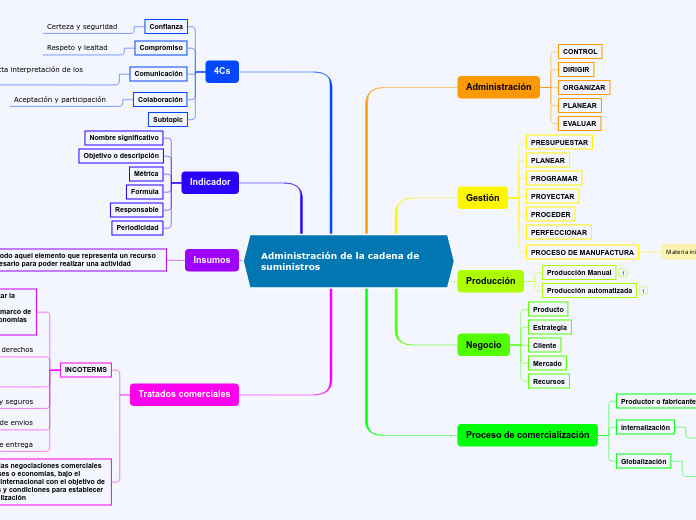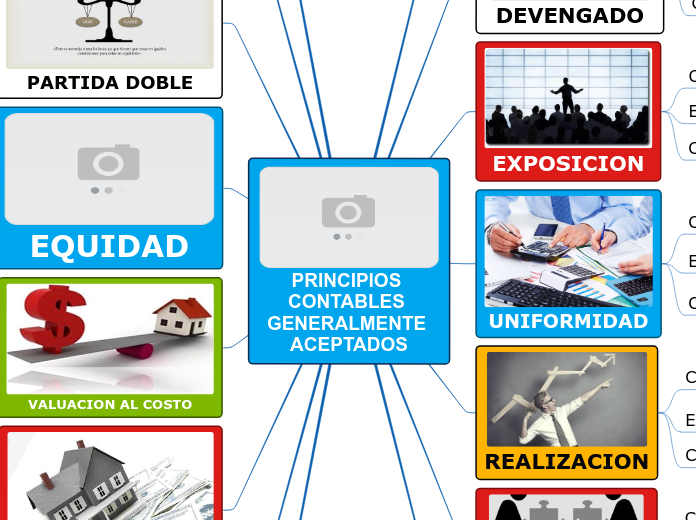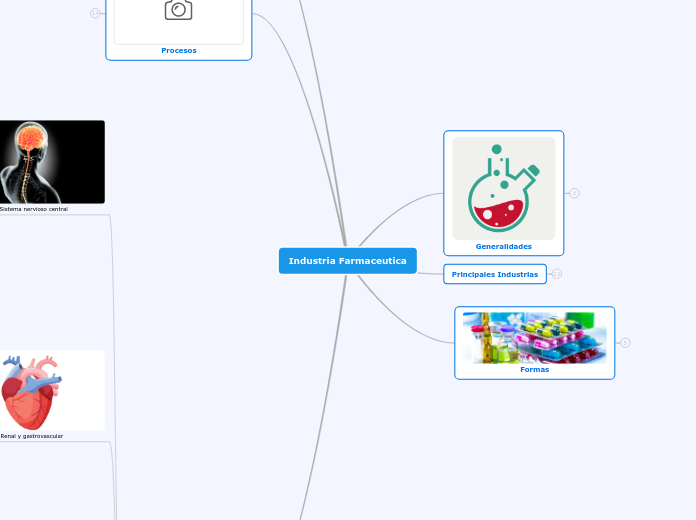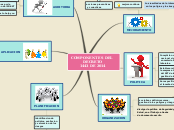Administración de la cadena de suministros
The part of speech is a category to which a word is assigned according to its syntactic functions. In English the main parts of speech are noun, pronoun, adjective, determiner, verb, adverb, preposition, conjunction, and interjection.
Tratados comerciales
A conjunction is a word like 'if' 'but' or 'and' which is used to connect sentences or clauses together.
Es un acuerdo para las negociaciones comerciales entre dos o mas países o economías, bajo el amparo del derecho internacional con el objetivo de mejorar los términos y condiciones para establecer canales de comercialización
Subordinating conjunctions are conjunctions that are used at the beginning of subordinate clauses. Some examples of these conjunctions are: although, after, before, because, how, if, once, since, so that, until, unless, when etc.
Create sentences
Although it was raining, I went out.
INCOTERMS
Coordinating conjunctions always connect phrases, words, and clauses. They are: for, and, nor, but, or, yet, so.
Rutas, embalajes y condiciones de entrega
Programación de envios
Acuerdos y condiciones de garantías y seguros
Acuerdos y condiciones de transporte y almacenamiento
Condiciones y distribución de pagos y derechos
Son acuerdos en negociaciones para realizar la comercialización de productos de forma internacional, generalmente basados en el marco de tratados comerciales entre las distintas economías mundiales
Insumos
A preposition is one of the most exciting parts of grammar. A preposition is used to describe the location of something in relation to something else.
Es todo aquel elemento que representa un recurso necesario para poder realizar una actividad
When a preposition consists of one word it is called single or simple preposition.
Intangibles
Tangibles
Indicador
An interjection is used to express emotion in a sentence.
Think of other interjections!
Periodicidad
Responsable
Formula
Métrica
Objetivo o descripción
Nombre significativo
4Cs
An adverb is used to describe a verb, but it can also describe an adjective or another adverb.
Adverbs normally help paint a fuller picture by describing how something happens.
Subtopic
Colaboración
The intensifiers strengthen adverbs adjectives and adverbs and down- toners make them weaker.
Aceptación y participación
Comunicación
Expresión y la correcta interpretación de los mensajes
Compromiso
Respeto y lealtad
Confianza
Certeza y seguridad
Proceso de comercialización
An article is a word used to modify a noun, which is a person, place, object, or idea. Technically, an article is an adjective, which is any word that modifies a noun.
Globalización
Implica todo aquel intercambio que entra en las fronteras de un país y afecta su desarrollo, por tendencia, condiciones especificas
Internalización
Implica salir de las fronteras del país, desarrollar actividades del negocio de la empresa
Productor o fabricante
Indefinite articles are the words 'a' and 'an.' Each of these articles is used to refer to a noun, but the noun being referred to is not a specific person, place, object, or idea. It can be any noun from a group of nouns.
producto(comercialización)
Consumidor
Negocio
A pronoun is a word that can be used in place of a noun, typically after the noun itself has already been stated.
Recursos
Reciprocal pronouns are used for actions or feelings that are reciprocated. The reciprocal pronouns are each other and one another.
Mercado
A reflexive pronoun ends with ...self or ...selves and refers to another noun or pronoun in the sentence (usually the subject of the sentence). The reflexive pronouns are myself, yourself, herself, himself, itself, ourselves, yourselves, and themselves.
Cliente
Demonstrative pronouns are used to demonstrate (or indicate). This, that, these, and those are all demonstrative pronouns.
Estrategia
Possessive pronouns are used to show possession. The possessive pronouns are mine, yours, his, hers, ours, and theirs.
Producto
The personal pronouns are I, you, he, she, it, we, they. More often than not (but certainly not always), they replace nouns representing people.
Producción
An adjective is a word that's used to describe a specific noun and to provide more detail to the listener.
Producción automatizada
Superlative adjectives demonstrate a higher level of comparison between entities.
En masa o en serie
Producción Manual
Expresses a comparison between two entities or groups of entities in quality or degree.
Artesanal
Gestión
A noun is defined as a person, place, thing or idea. Proper nouns always begin with a capital letter. Common nouns, which are general words, such as 'cars,' are not capitalized.
PROCESO DE MANUFACTURA
Materia inicial
Material sin procesar
Material procesado
PERFECCIONAR
PROCEDER
PROYECTAR
Compound nouns are words where two nouns have been stuck together to make a new noun. Compound nouns should be written as one word, without a hyphen.
PROGRAMAR
A noun which refers to a group of things/people.
Countable nouns are nouns that can be counted, even if the number might be extraordinarily high.
Uncountable nouns are nouns that come in a state or quantity which is impossible to count; liquids are uncountable, as are things which act
like liquids.
PRESUPUESTAR
Proper nouns are the names of specific people or places. They should always begin with a capital letter.
Administración
A verb is an action word or 'doing' word that signifies movement in some way.
EVALUAR
An auxiliary verb helps the main (full) verb and is also called a 'helping verb.' With auxiliary verbs, you can write sentences in different tenses, moods, or voices.
PLANEAR
A participle is a verb form that can be used as an adjective or to create a verb tense. There are two types of participles: Present participle (ending -ing) and Past participle (usually ending -ed, -d, -t, -en, or -n).
ORGANIZAR
A modal is a type of auxiliary (helping) verb that is used to express: ability, possibility, permission or obligation. The main modal verbs in the English language are: can, could, may, might, must, shall, should, will, would.
DIRIGIR
A linking verb connects the subject with a word that gives information about the subject, such as a condition or relationship.
CONTROL
A verb with its own meaning: a verb that is not an auxiliary verb.









